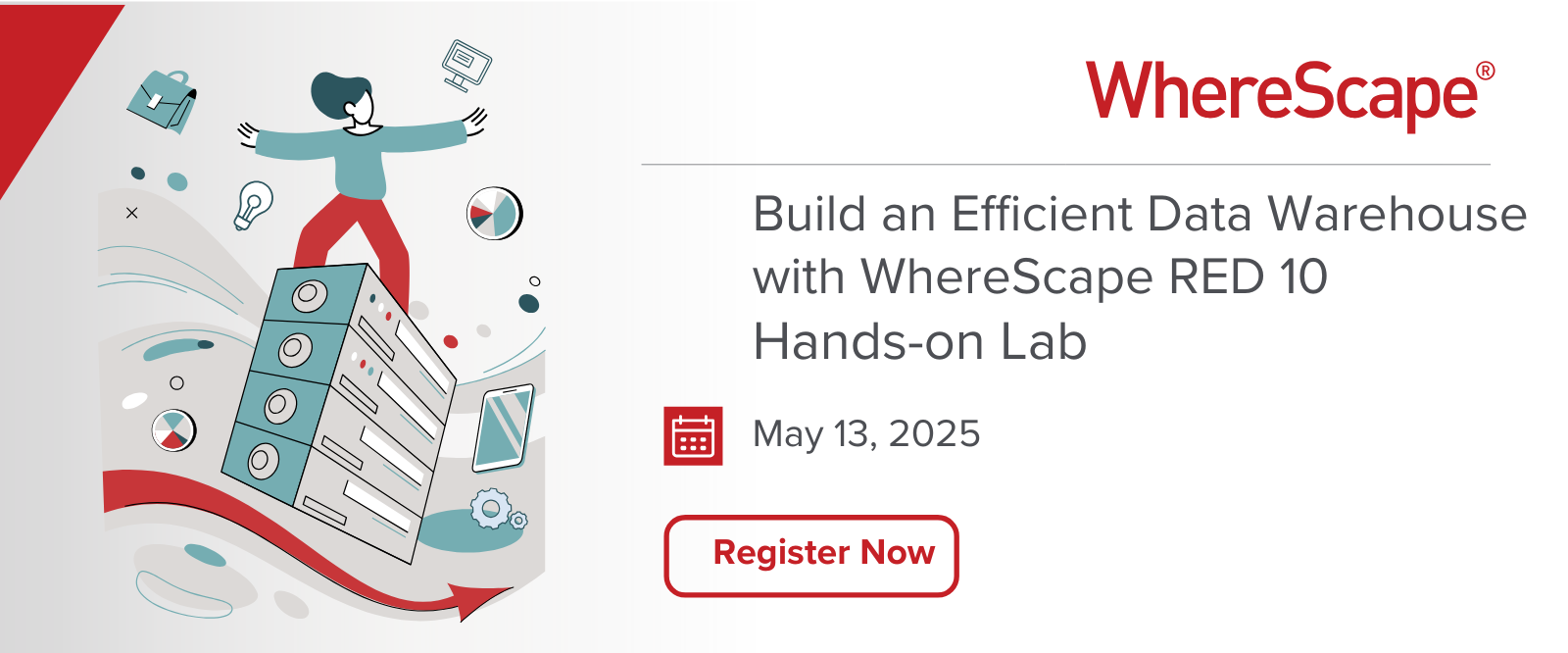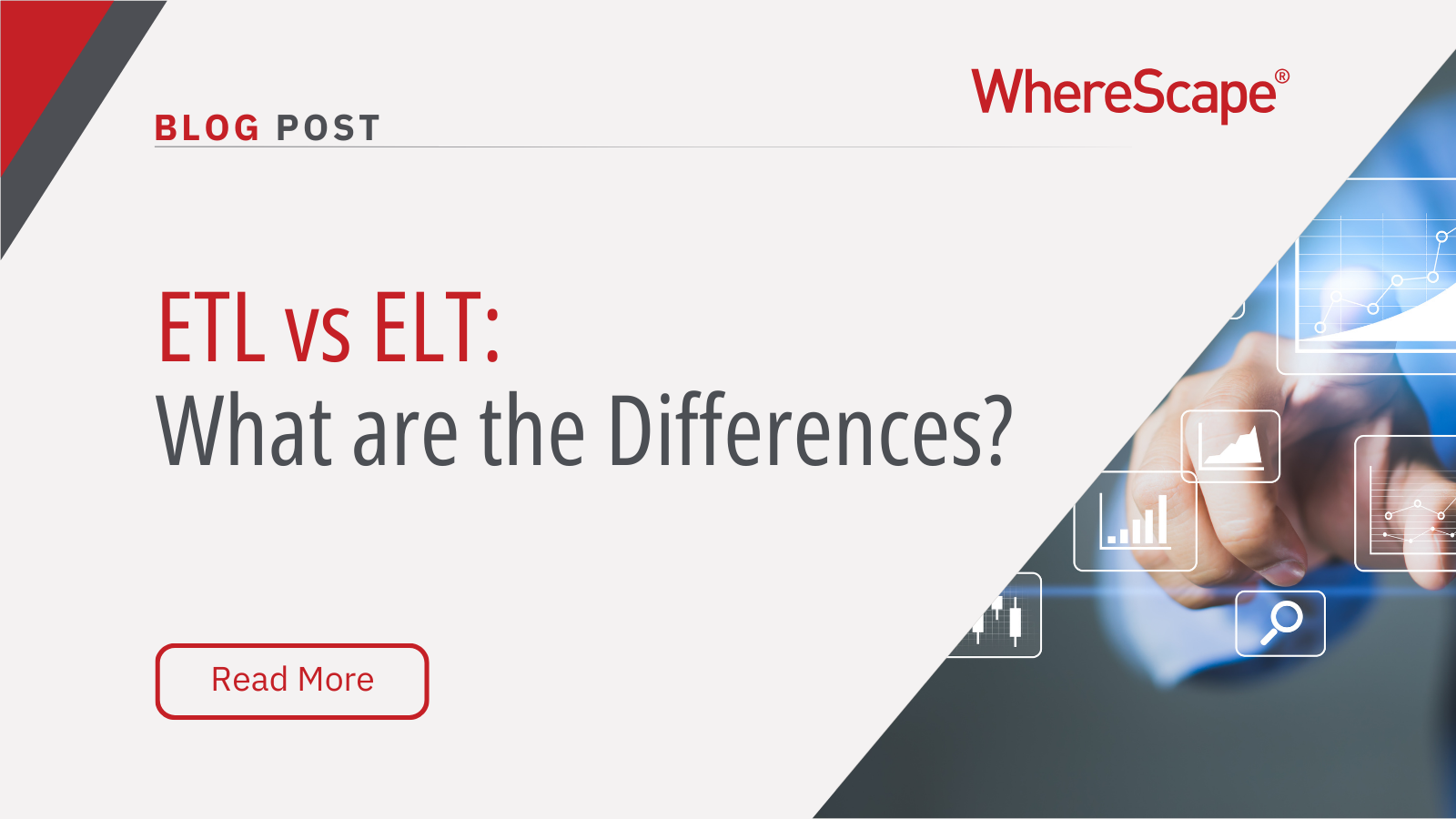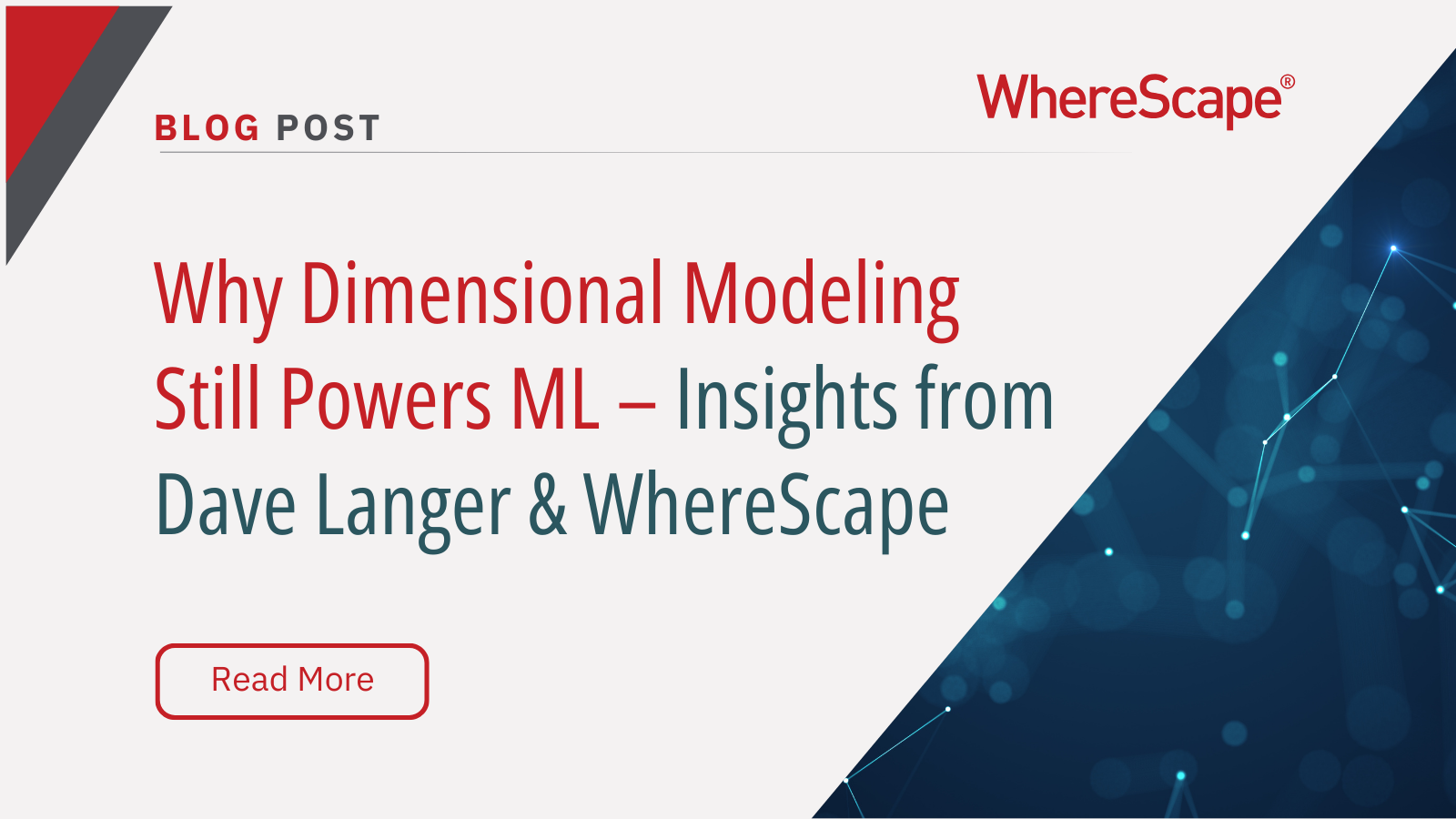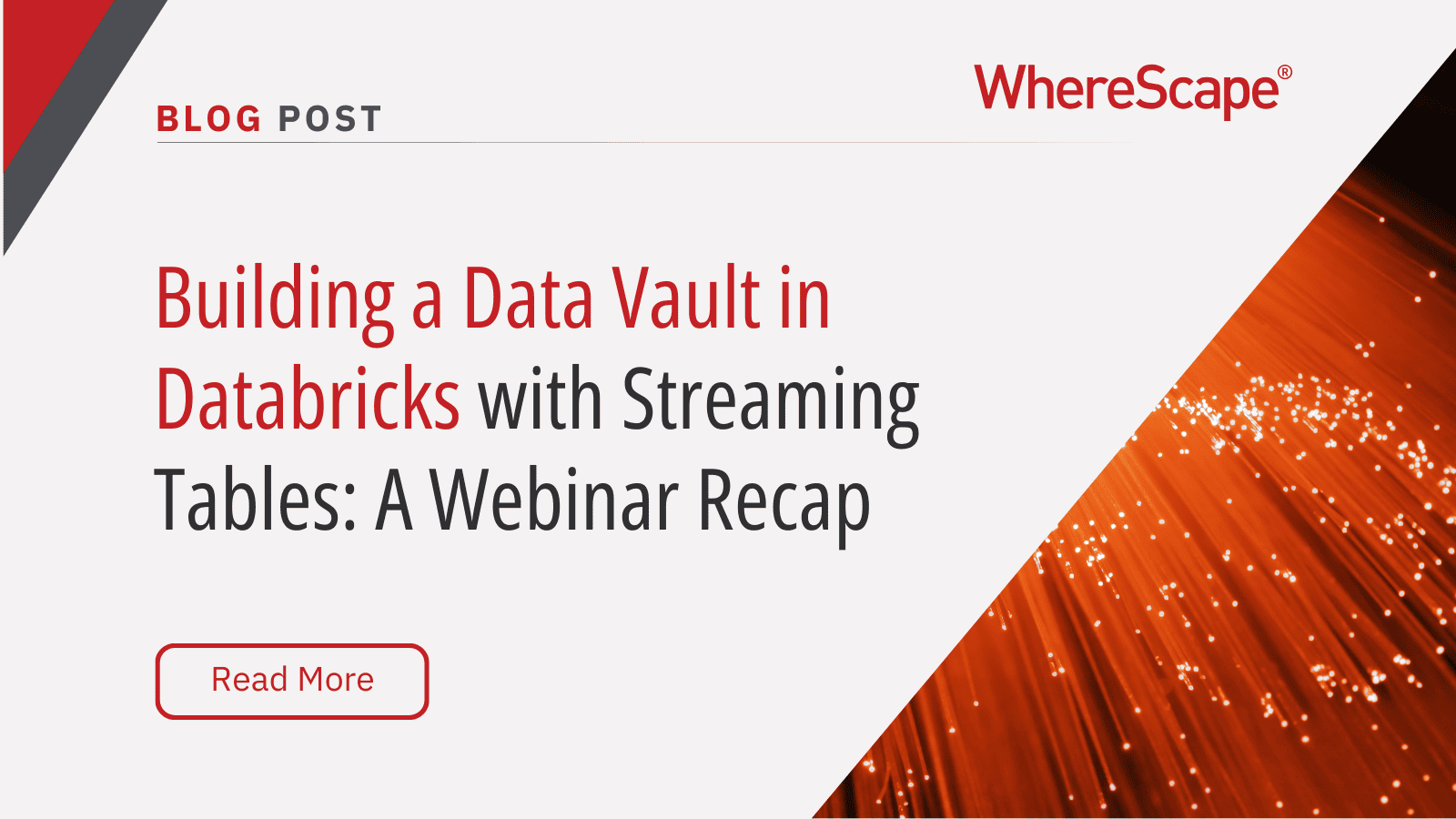Tune in for a free, live virtual hands-on lab...
Why the Ability to Scale is Transformative for Data Teams
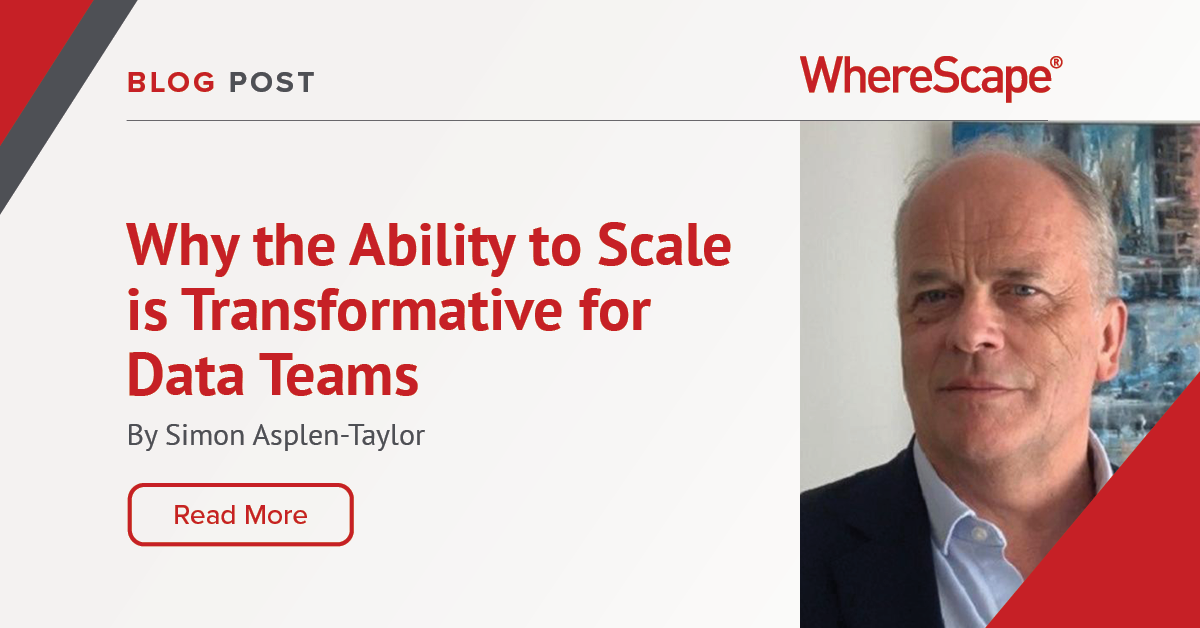
In my previous blog, we talked about quick wins. One of the criteria of a good quick win is that it can be built on or repeated at a later date. That later date has now arrived.
We have to be careful not to take on a myriad of projects that are unrelated to each other. Your data team’s ability to replicate the value achieved in one win with many similar wins across the business offers a potentially huge return on investment. But be careful not to become overwhelmed.
It’s counter-intuitive to think that by starting small you can achieve scale quicker, but this is indeed the case because when you limit your early scope you learn quickly and show tangible results. If you achieve something and it works, you can turn that into widespread board support and funding for a more ambitious project based on the same principles.
If you’ve not experienced that yet, it feels good. Very good.
Tony Robbins, an influential author, motivational speaker and philanthropist says “In business, the definition of “scale” is to increase revenue at a faster rate than costs. Businesses achieve this in a number of ways, from adopting new technologies to finding “gaps” in their operations that can be streamlined. Businesses that are able to add revenue and increase operational demands while maintaining the same costs – or even lowering costs – will be able to scale successfully.” (Robbins Research International, 2021)
This is the thinking that underpins scaling. So you’re ready to scale? There are, effectively, two ways to do this.
Scale Up: Replicate a Defined Project
Some projects make this the natural choice. At an energy company I worked for that ran petrol stations and oil supplies in 23 countries in Africa, our goal was to use data to make the retail offer more efficient. Although Mali is not the same as Burkina Faso, the principle is the same: we planned to capture customer data and use it to find what else the customer might want in their basket based on what most people buy or perhaps seasonal demand. That’s scale: you do one thing and then do it across all 23 countries.
The success of this relies not only on the ability to create quality and trusted data but also on the management task to get all parts of the business to follow the same processes and apply the same standards.
The potential for failure is the absence of those qualities. Certain variations may occur between the different places in the business where the project is implemented, and data acquisition may vary, as might management ability. This may create governance challenges. Also, there may be variation in laws governing the acquisition, sharing and use of data, and in the habits and norms in the two places.
Scale Out: Find an Adjacent Activity
This may be more challenging. The data capability grants an opportunity to innovate across the business. A Single Customer View (SCV) is useful to deepen existing relationships with customers – buying the same thing more often, but also to develop new products and services that they buy. The potential is that, in data terms, you can use the same SCV in an entirely new way.
There are two caveats: The first is that this may require new, or more, data. For example, some external data that tells us more about the customer’s habits when they are not transacting with our business. The second is that it may require new ways of working. That means cooperation between two business units that until now worked separately or discipline in how to execute a marketing plan based on knowledge rather than activity. For this, you rely on the willingness of the managers in those parts of the business to evangelize data and change ingrained habits. So it’s not entirely straightforward, but this is a huge step towards establishing a data-driven culture, which is our ultimate goal.
What to do Once you Scale Successfully
So now you’ve been the leader of a successful data transformation project, you will have no shortage of people who will want to support you because you are successful. This may present us with a problem: you have limited time in your day and too many things to do already. This means that scaling up isn’t about suddenly doing everything, everywhere, all the time, for everyone who sends you an email. Scaling is about putting in place ways to achieve a maximum return on the data team’s investment.
This is an important aspect of scaling up. From the outside, everyone can see the similarities between what you have just done and what they want for their bit of the business. Look closer, and they often overestimate the regularities. If something is a bit like something else, if there are a few aspects of that project that can be carried over into the next one, it’s not scaling up, it’s an entirely new piece of work.
If you’re going through this, you probably have requests to replicate projects on your desk already. It is important that you evaluate the need, the prospect of success, and the constraints on delivery that you will encounter. You have to learn to say no and have the confidence and backing to do that. Achieve this and it’ll be a major breakthrough for your data team.
Summary
- Having created success in one part of the business, the ability to replicate this in other areas or processes offers a potentially enormous return on investment.
- The knowledge that the data team has of these processes is an important factor in applying them quickly and effectively.
- You can crowdsource ideas for scaling using techniques like hackathons, bringing together your whole data community.
- These also help to establish the importance of the data transformation, because scaling will make your work more visible.
- Implementation requires the cooperation of the business, and especially of allies inside it if it is to happen at speed.
ETL vs ELT: What are the Differences?
In working with hundreds of data teams through WhereScape’s automation platform, we’ve seen this debate evolve as businesses modernize their infrastructure. Each method, ETL vs ELT, offers a unique pathway for transferring raw data into a warehouse, where it can be...
Dimensional Modeling for Machine Learning
Kimball’s dimensional modeling continues to play a critical role in machine learning and data science outcomes, as outlined in the Kimball Group’s 10 Essential Rules of Dimensional Modeling, a framework still widely applied in modern data workflows. In a recent...
Automating Data Vault in Databricks | WhereScape Recap
Automating Data Vault in Databricks can reduce time-to-value by up to 70%—and that’s why we hosted a recent WhereScape webinar to show exactly how. At WhereScape, modern data teams shouldn't have to choose between agility and governance. That's why we hosted a live...
WhereScape Recap: Highlights From Big Data & AI World London 2025
Big Data & AI World London 2025 brought together thousands of data and AI professionals at ExCeL London—and WhereScape was right in the middle of the action. With automation taking center stage across the industry, it was no surprise that our booth and sessions...
Why WhereScape is the Leading Solution for Healthcare Data Automation
Optimizing Healthcare Data Management with Automation Healthcare organizations manage vast amounts of medical data across EHR systems, billing platforms, clinical research, and operational analytics. However, healthcare data integration remains a challenge due to...
WhereScape Q&A: Your Top Questions Answered on Data Vault and Databricks
During our latest WhereScape webinar, attendees had fantastic questions about Data Vault 2.0, Databricks, and metadata automation. We’ve compiled the best questions and answers to help you understand how WhereScape streamlines data modeling, automation, and...
What is Data Fabric? A Smarter Way for Data Management
As of 2023, the global data fabric market was valued at $2.29 billion and is projected to grow to $12.91 billion by 2032, reflecting the critical role and rapid adoption of data fabric solutions in modern data management. The integration of data fabric solutions...
Want Better AI Data Management? Data Automation is the Answer
Understanding the AI Landscape Imagine losing 6% of your annual revenue—simply due to poor data quality. A recent survey found that underperforming AI models, built using low-quality or inaccurate data, cost companies an average of $406 million annually. Artificial...
RED 10: The ‘Git Friendly’ Revolution for CI/CD in Data Warehousing
For years, WhereScape RED has been the engine that powers rapidly built and high performance data warehouses. And while RED 10 has quietly empowered organizations since its launch in 2023, our latest 10.4 release is a game changer. We have dubbed this landmark update...
The Assembly Line for Your Data: How Automation Transforms Data Projects
Imagine an old-fashioned assembly line. Workers pass components down the line, each adding their own piece. It’s repetitive, prone to errors, and can grind to a halt if one person falls behind. Now, picture the modern version—robots assembling products with speed,...
Related Content
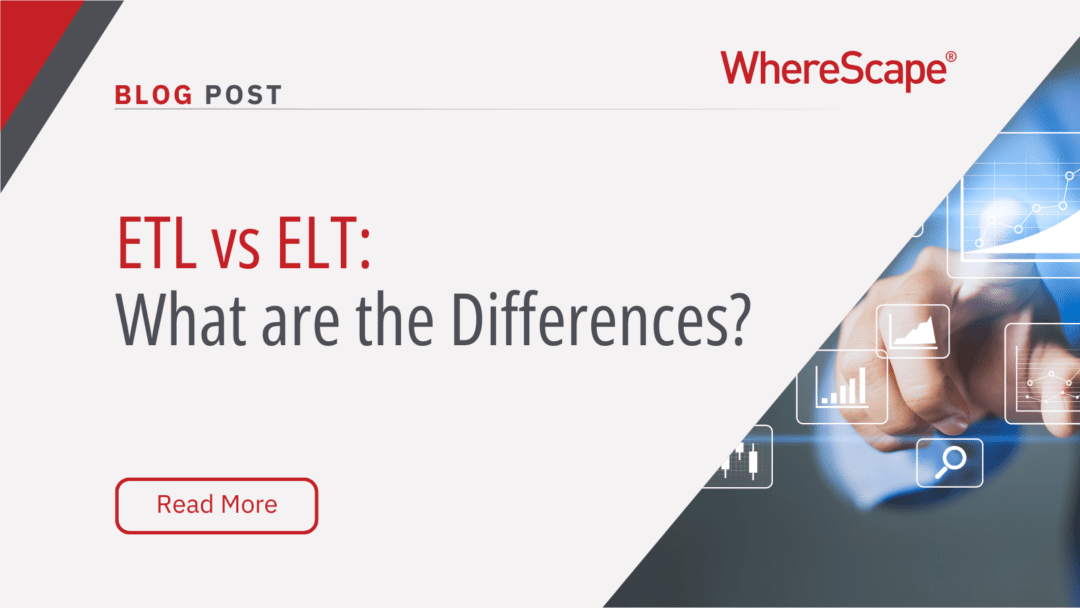
ETL vs ELT: What are the Differences?
In working with hundreds of data teams through WhereScape’s automation platform, we’ve seen this debate evolve as businesses modernize their infrastructure. Each method, ETL vs ELT, offers a unique pathway for transferring raw data into a warehouse, where it can be...
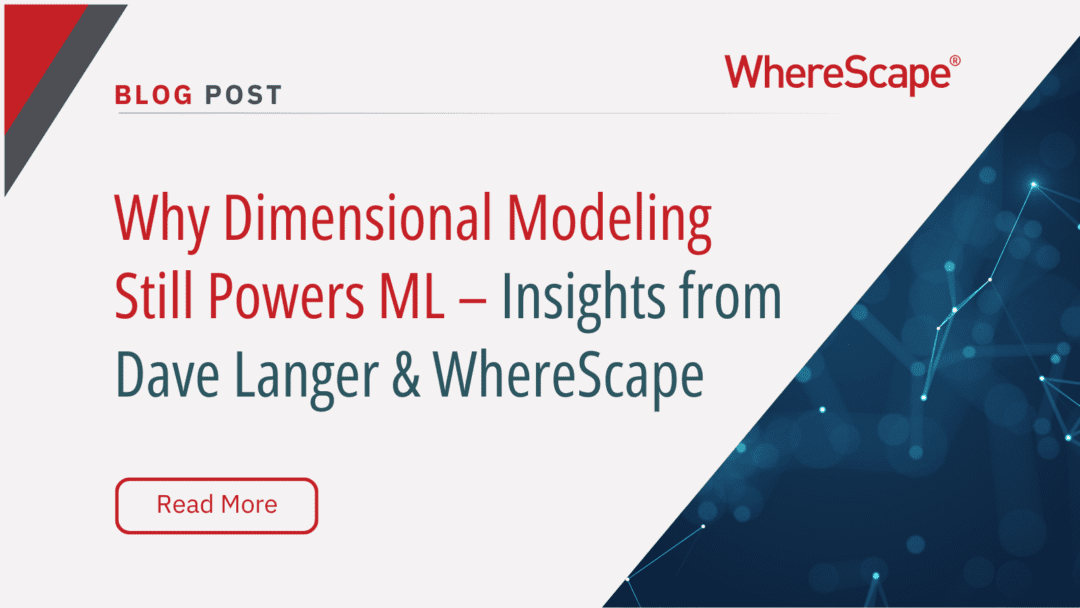
Dimensional Modeling for Machine Learning
Kimball’s dimensional modeling continues to play a critical role in machine learning and data science outcomes, as outlined in the Kimball Group’s 10 Essential Rules of Dimensional Modeling, a framework still widely applied in modern data workflows. In a recent...
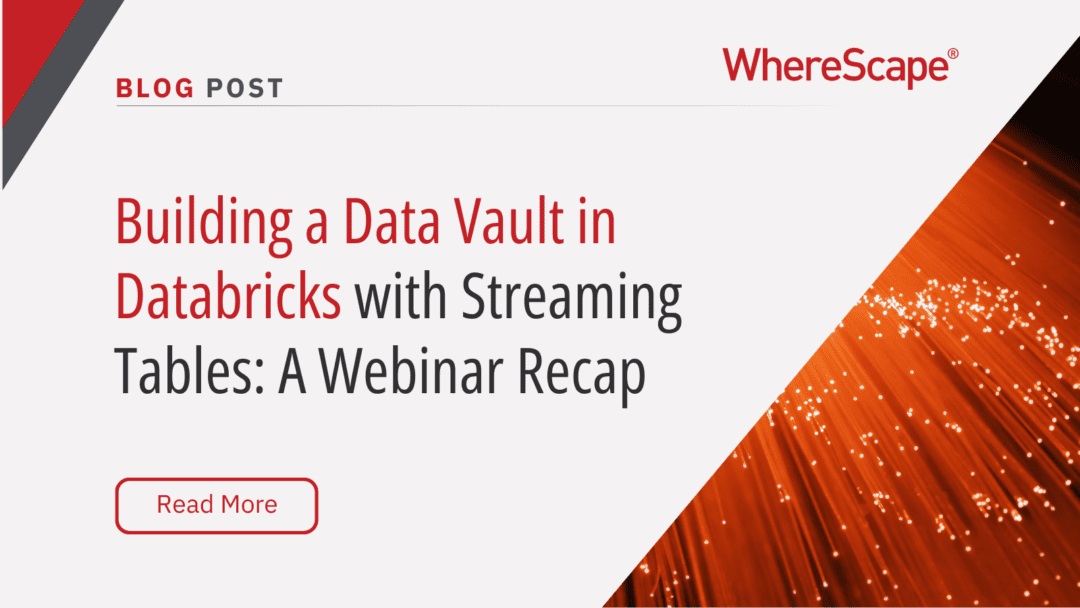
Automating Data Vault in Databricks | WhereScape Recap
Automating Data Vault in Databricks can reduce time-to-value by up to 70%—and that’s why we hosted a recent WhereScape webinar to show exactly how. At WhereScape, modern data teams shouldn't have to choose between agility and governance. That's why we hosted a live...
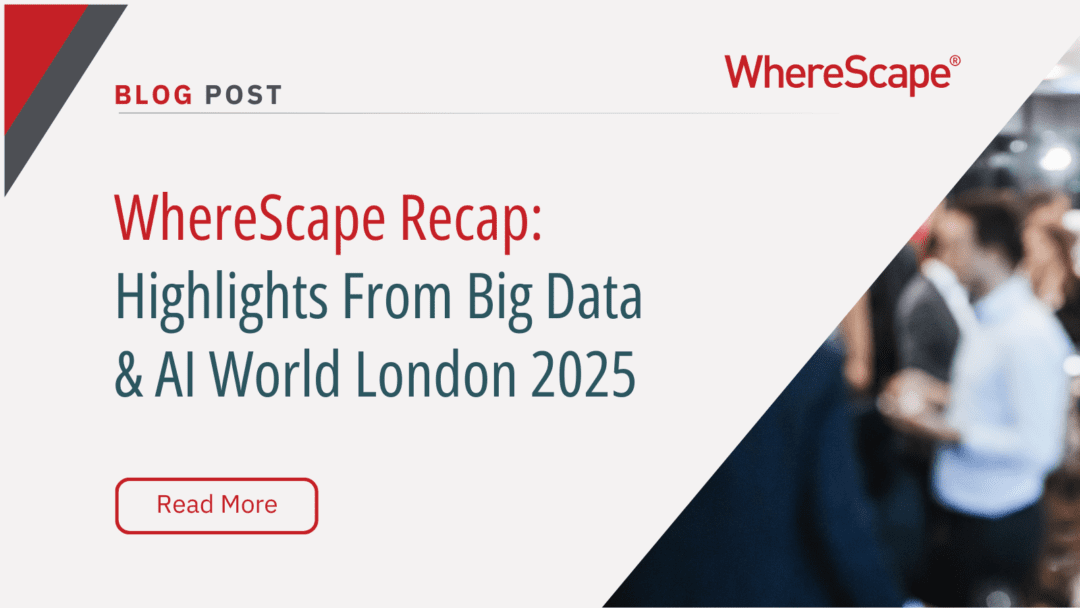
WhereScape Recap: Highlights From Big Data & AI World London 2025
Big Data & AI World London 2025 brought together thousands of data and AI professionals at ExCeL London—and WhereScape was right in the middle of the action. With automation taking center stage across the industry, it was no surprise that our booth and sessions...

